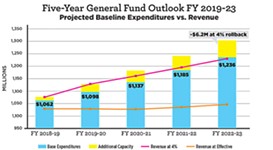Fire Contract Talks in Limbo
Despite voter approval in May, still no collective bargaining
By Jordan Smith, Fri., Aug. 20, 2004

When is the will of the voters not a mandate for City Hall? When the will of the voters favors collective bargaining power for city employee unions in labor contract negotiations, says Austin Association of Professional Firefighters President Mike Martinez. Although 60% of city voters cast their ballots back in May in favor of giving the AAPFF collective bargaining power, Austin's firefighters will likely begin the upcoming fiscal year without a contract, and perhaps even without talks under way.
At issue, says Martinez, is the city's refusal to waive the so-called "120-day notice" – advance warning of a union's intent to seek negotiations – that it's entitled to under collective bargaining rules, prior to the start of talks between the city and the AAPFF, which represents the majority of Austin's nearly 1,000 firefighters. Prior to the May 15 vote, the union negotiated its labor agreements with the city under the "meet and confer" provisions of state civil-service law, also used by the city and the Austin Police Association in their last three contracts. However, the last fire contract expired in September 2002, and City Hall and the AAPFF suspended their most recent meet-and-confer talks more than a year ago, as the city's fiscal crisis reached its peak; the AAPFF then launched a petition drive to get collective bargaining on the May ballot.
While meet-and-confer is akin to traditional bargaining, there are several key differences. Under collective bargaining, the city and the union have a time limit of 60 days to negotiate – unlike with meet-and-confer, where talks can last for months – and each party must attempt "in good faith" to reach an agreement. If the parties are deadlocked after 60 days, collective bargaining requires each side to present a "last and best" offer to a third-party arbitrator, who determines the outcome.
Further, and notably, collective bargaining requires that the two sides discuss employee wages and benefits – two topics not mandated for discussion under meet-and-confer, though they've been key features of both fire and police contracts. And it appears that the question of wages – specifically, pay raises – is at the root of the current stalemate between the city and the union, says AAPFF President Mike Martinez.
Early this year, Martinez says, the union agreed to sit down with the city, beginning April 1, to negotiate a new contract under meet-and-confer, since the AAPFF hadn't yet decided if it would pursue collective bargaining at the ballot box, and obviously couldn't be sure it would succeed if it did. In February, once the union decided to pursue collective bargaining, Martinez says he got a call from the city, calling off the April talks because city officials wanted to wait and see what happened in May.
Now, though Austin voters have approved the measure, the AAPFF says that the Texas Local Government Code requires jumping through one last hoop. The City Council has to formally place the statute "into effect," which it must do no later than 30 days after the start of the next fiscal year, Martinez said. In other words, the collective bargaining rights will automatically take effect on Nov. 1, unless the council chooses to kick-start things. But that hasn't happened.
Meanwhile, he says, city officials have told him that the firefighters are set to receive the same 3.5% raise City Manager Toby Futrell has proposed for all city employees in the fiscal 2005 budget. But firefighters will not see the additional 2% raise – the so-called "public safety premium" – being offered to EMS employees and included in the last police meet-and-confer contract, unless they have a labor contract negotiated and signed by the beginning of the new fiscal year, Oct. 1. Martinez says the union is fine with that and is ready to hammer out a contract. But for that to happen, the city must place the statute into effect and waive the written 120-day notice required under collective bargaining – two things the city, thus far, has not done.
Assistant City Manager Rudy Garza says the city is not attempting to thwart the will of the voters. "That's a completely valid concern, and I can assure you that we've gotten the [voters'] message," he said, but the city must also safeguard taxpayer money and present a balanced budget. Nonetheless, Garza said that, by law, the city is not required to pass an ordinance or take any other action in order to proceed under collective bargaining. "We don't find anything in the statute that requires us to do anything [in order] to begin negotiations," he said.
However, the statute does require that the union present notice to the city if it intends to discuss pay and benefits. The city hasn't waived that requirement out of an abundance of fiscal caution, he said – in other words, the city appears wary of the union's promise not to ask for more than the city has said it can give. For example, while the union says it doesn't intend to ask for more than the combined 51/2% raise, it could ask for, say, additional days off, which could have additional, costly, fiscal implications. Still, Garza said, if what the union is truly saying "is that they're ready to accept" the 51/2% that is in the budget, "and if that is all that they're asking for, then we're ready to go," he said. "And everything else is a moot point."
Got something to say on the subject? Send a letter to the editor.










